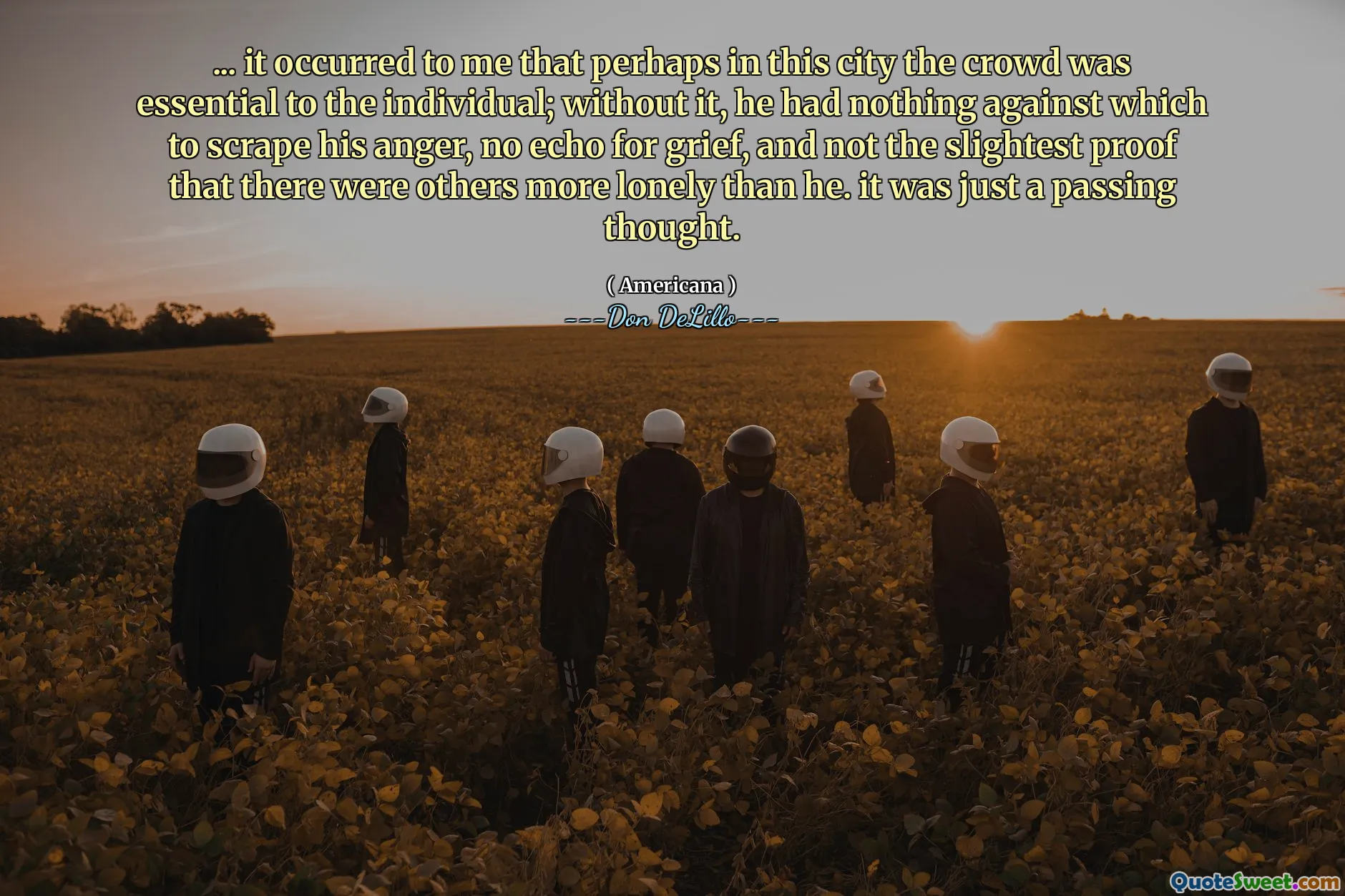
... it occurred to me that perhaps in this city the crowd was essential to the individual; without it, he had nothing against which to scrape his anger, no echo for grief, and not the slightest proof that there were others more lonely than he. it was just a passing thought.
This quote from Americana by Don DeLillo offers a profound insight into the intrinsic relationship between the individual and the collective. The idea that a crowd is essential to one's identity resonates deeply in the context of modern urban life, where the presence of others often defines the framework of personal experience. The crowd is portrayed not simply as a backdrop but as a necessary context against which individuals measure their emotions—anger, grief, loneliness.
What stands out is the poignant observation that without the crowd, an individual's intense feelings would lose their point of reference. Anger needs a target, grief needs an echo, and loneliness is validated only by the existence of others who are equally isolated. This, in essence, reflects the human need for social comparison and connection as ways to understand and cope with one's emotions. The "nothing against which to scrape his anger" metaphor beautifully conveys how emotions seek an external surface to cling to, emphasizing the relational nature of human psychology.
Moreover, the mention that it was "just a passing thought" hints at the fleeting, often subconscious awareness we have of these dynamics. It reveals how much of our social existence goes unquestioned, yet underpins our emotional survival. This duality of individual isolation and collective necessity mirrors the complexity of modern existence, where one can be surrounded by many yet profoundly disconnected.
In summary, the quote eloquently encapsulates the paradox of modern individuality: a desire for selfhood that is inevitably intertwined with the presence and perceptions of others. It invites us to reflect on how our emotions depend not only on our inner world but also on the social tapestry we are part of, making loneliness and connectedness two sides of the same coin.






